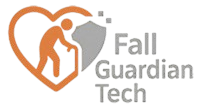Clear vision is vital for seniors’ safety and quality of life. It helps them navigate their environment confidently and reduces fall risks. Here’s how to preserve eye health effectively:
Daily Habits for Healthier Eyes
Adopt these practices to support long-term vision:
- Nutrition Matters:
- Eat foods rich in vitamins C and E (e.g., citrus fruits, leafy greens) to combat age-related damage.
- Include omega-3 fatty acids (fish, nuts) and lutein (spinach, carrots) to protect against macular degeneration.
- Avoid Harmful Habits:
- Quit smoking—it accelerates cataracts and macular degeneration.
- Limit alcohol and caffeine, which can dehydrate eyes and worsen dryness.
- Prevent Eye Strain:
- Follow the 20-20-20 rule: Every 20 minutes, look 20 feet away for 20 seconds.
- Ensure proper lighting when reading; avoid glare from direct sunlight or screens.
- Wear UV-blocking sunglasses outdoors to reduce cataract and macular degeneration risks.
Vision Checkups & Correct Eyewear Use
Regular exams and proper glasses are non-negotiable:
- Schedule Annual Eye Exams:
- Seniors should see an eye doctor yearly—not biennially—to catch glaucoma, cataracts, or diabetic retinopathy early.
- Choose the Right Glasses:
- Reading Glasses:
- Opt for prescription-based lenses instead of over-the-counter options. Generic readers often cause distortion, dizziness, or falls.
- Test adequacy: Clear vision at 12 inches (30 cm) without eye strain or headaches.
- Update prescriptions every 1–2 years; vision changes frequently with age.
- Sunglasses:
- Select 100% UV-protective lenses (gray or brown tints) with clear traffic signal visibility.
- Avoid if diagnosed with glaucoma—dark lenses may elevate intraocular pressure.
- Reading Glasses:
Proactive Health Management
Guard against vision-threatening conditions:
- Control Chronic Diseases:
- Diabetes: Tightly manage blood sugar; annual dilated retina exams prevent blindness from retinopathy.
- Hypertension: High blood pressure damages retinal vessels—monitor regularly.
- Recognize Warning Signs:
- Seek immediate help for blurred vision, floaters, or peripheral vision loss—these signal strokes, retinal detachment, or glaucoma.
- Enhance Environmental Awareness:
- Use hearing aids if needed. Better auditory cues improve spatial awareness, indirectly preventing falls.
Key Stat: Falls cause 3 million senior ER visits yearly in the U.S. (CDC). Poor vision doubles fall risk—making these steps lifesaving.
Why This Matters for SEO:
- Targeted Keywords: senior eye health, prevent vision loss, reading glasses safety, fall prevention seniors, age-related eye diseases.
- Local Intent: Phrases like “annual eye exams for seniors near me” or “prescription readers vs. drugstore glasses” align with search behavior.
- Authority Boost: Citations from health agencies (CDC, NIH) and ophthalmology sources enhance credibility.
By framing eye care as a pillar of independence, this content addresses both health concerns and emotional needs—key for engaging senior audiences and caregivers.
Pro Tip: Include a “Quick Self-Check” sidebar: “Cover one eye: Can you read street signs clearly? Spot uneven pavement? See faces from 4 feet away? If not, schedule an exam today.”
